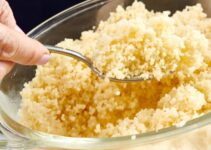Shati (Hedychium spicatum) overview
Shati (Hedychium spicatum) or zedoary, an Ayurvedic herb, is known to treat digestive disorders, cardiac, debility, blood disorders, respiratory afflictions, and skin diseases. Shati, the medicinal plants, are known by different names, viz. Gandhamula, Sthulakanda, Gandha, Jatila, Dravida, Palashi, etc. The main important part of this plant, used for medicinal purposes, is rhizomes.
Shati (Hedychium spicatum) plant introduction
Zedoary is a perennial herb growing up to a height of one meter. To some extent, it resembles a turmeric plant. The rhizomes are oblong and aromatic and available as slices in the market. It has long, broad and glabrous leaves. The flowers are white and covered with minute hair on the long stalk. The fruits are small, round, and smooth. The plant is generally found in the Himalayan regions like Nepal, Bhutan, Kumaon, etc.
Shati (Hedychium spicatum) ayurvedic properties
- Taste: Pungent, bitter, and astringent
- Post digestive effect: Pungent
- Potency: Hot
- Attributes: Light and Sharp
- Dosha: Alleviates Kapha and Vata
- Action: Appetizer, deflatulent, mouth deodorant, etc.
10 Shati (Hedychium spicatum) medicinal uses
- Hair loss: Massage the scalp with the medicated oil of Shati. Regular doing of it helps to promote hair growth and also prevent baldness.
- Digestion: Shati is extremely useful in digestive disorders like loss of appetite, indigestion, flatulence, diarrhoea, vomiting, and abdominal pain. Method: The rhizome powder (1-3 gm) is given along with honey.
- Respiratory problems: Zedoary rootstalk helps treat asthma, bronchitis, and hiccups. It also gives relief from bronchospasm and bronchial asthma.
- Teeth cleansing: The powder of Shati rhizome is very effective in cleansing the teeth. It is also beneficial in the case of dental aches and caries.
- Cardiac health: Shati rhizome works well in cardiac debility and health.
- Mouth deodorant: If you are suffering from a mouth smell, it is recommended to use the ayurvedic herb. It is one of the best mouth deodorants. The small piece of its rhizome is chewed for this purpose.
- Headache: It is good to relieve headaches, especially in cases of chronic sinusitis. Method: Here, the nasal administration (Masaya) of the shati tail mitigates headache and phlegm, especially Kapha origin.
- Joint pain: The massage of Shati (Hedychium spicatum) oil over the joints helps to relieve joint pain and its swelling.
- Tropical Eosinophilia: In a recent study, it has been shown that the plant rhizome is effective in Tropical Eosinophilia.
- Hiccup: The fumigation of the zedoary rhizome alleviates hiccup.
10 Shati (Hedychium spicatum) benefits
- Dandruff: The massage of Shati (Hedychium spicatum) oil, along with sesame oil, is effective in treating dandruff.
- Cough: The mix of its rhizome and honey (20ml), if taken, helps to cure cough.
- Skin infection: Applying its paste over the skin benefits skin infection.
- Fever: It gives relief against fever. The dosage of 20 ml can be taken after consultation with an Ayurvedic physician.
- Blood purifier: It can also be taken to improve blood conditions.
- Gas: The use of its powder helps to combat intestinal gases.
- Antiseptic: It is also used as an antiseptic.
- Aphrodisiac: The use of its powder stimulates sexual desire.
- Anti-inflammatory: It acts upon the body and acts as an anti-inflammatory agent.
- Diuretic: It helps to excrete urine and increases its excretion.
Nutritional facts of Shati (Hedychium spicatum)
The rhizome of shita contains sitosterol and its glucosides. Its oil contains cineole, terpinene, beta-phellandrene, payment, linalool, etc. The plant also has starch, volatile oils, and carbonic acid.
Precautions of Shati
It shouldn’t be used in the following conditions.
- Menstrual cycle
- Pregnancy
- Acidity
- It shouldn’t be taken in excess
Parts used: Rhizomes
Dosage: 1 to 3 grams




